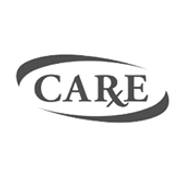Columbia Pharmacy Explains Must-Know HIV Symptoms

Is it possible for anyone to tell if they have contracted HIV? While there’s no absolute way to know without a doctor’s diagnosis, Columbia Hickory Pharmacy in Maryland says there are several signs and symptoms that may be an indicator you have the disease. HIV, if not properly managed, can progressively get worse and lead to AIDS.
To help you identify whether or not you should be concerned about the possibility of having contracted HIV, you should be familiar with the symptoms. It’s important to note that early-stage HIV may result in different symptoms than a more progressive form does. Read below for the most common symptoms associated with each stage of the disease:
Early-Stage HIV Symptoms
The early onset of the HIV infection can pose a variety of symptoms. Many people begin experiencing flu-like symptoms within two to four weeks of contracting the disease. Others, however, may not notice any symptoms at all.
The most common symptoms of early-stage HIV include fever, chills, rash, night sweats, muscle aches, sore throat, fatigue, swollen lymph nodes, and mouth ulcers. Some people infected with HIV may experience a handful of these symptoms, whereas others may only notice one or two. Most of these will last from a few days to several weeks, but some people’s symptoms go completely unnoticed.
Latency-Stage HIV Symptoms
 If you’ve contracted HIV and it’s in a more progressive state, you may experience new and different symptoms than those associated with early-stage HIV. Some people who have late-stage HIV may not notice any typical HIV-related symptoms, or they’ll experience very mild forms of them.
If you’ve contracted HIV and it’s in a more progressive state, you may experience new and different symptoms than those associated with early-stage HIV. Some people who have late-stage HIV may not notice any typical HIV-related symptoms, or they’ll experience very mild forms of them.
Late-stage HIV symptoms that could indicate the disease is progressing to AIDS may include rapid weight loss, recurring fever, extreme tiredness, long-lasting diarrhea, pneumonia, skin discoloration, memory loss, neurological disorders, and prolonged swelling of lymph nodes in the armpits, groin, and neck. Additionally, late-stage HIV sufferers may notice sores in their mouth, anus, or on their genitals.
If you are experiencing these symptoms for unexplained reasons, or if you think you’ve been exposed to HIV, always consult your doctor. They can conduct a series of blood tests to confirm the diagnosis.
For those who are currently living with HIV or AIDS and reside in Maryland, contact Columbia Hickory Pharmacy to find out how they can provide you with the medications and counseling to help you manage the disease. You can call their pharmacists at (410) 964-6409, or you can visit their website for more information about their services.
About the Business
Have a question? Ask the experts!
Send your question

